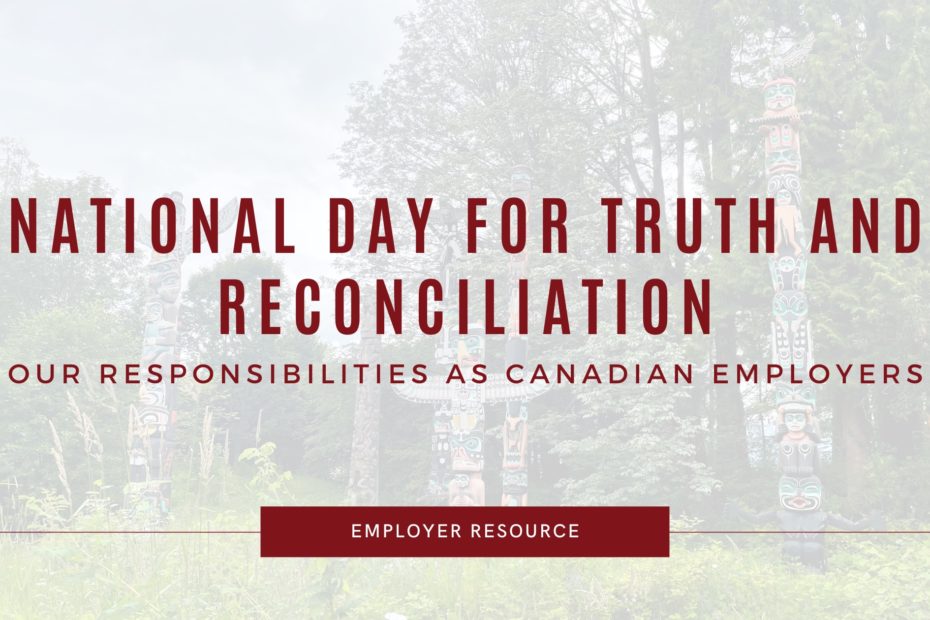September 30th marks Canada’s annual National Day for Truth and Reconciliation and its first anniversary.
This day is dedicated to acknowledging and commemorating the lasting and harmful impacts of church- and government-run schools on the wellbeing and livelihood of Indigenous peoples. The ongoing impacts of these schools are still heavily felt by Indigenous peoples and their communities today.
With a year having passed since the first National Day for Truth and Reconciliation, Canadians have had time to reflect on the importance and weight of the history behind September 30th. In the past year, we have learned about an increasing number of unmarked graves at government-sponsored religious schools, grieved alongside Indigenous peoples, and found meaningful ways to take action towards reconciliation while reflecting on feelings of guilt, grief, and anger.
However, the lasting effects of government-sponsored religious schools on Indigenous communities must be acknowledged as discrimination against Indigenous peoples is still unmistakably present within Canada today. Indigenous peoples face significant challenges including inadequate housing; poorer health due to unsanitary living conditions; higher rates of unemployment, incarceration, and mental health struggles. The list goes on.
There’s still work to be done.
It’s crucial that we continue to deconstruct our own conscious and unconscious biases through learning, unlearning, and relearning the truth about the painful history of Indigenous peoples in Canada. It is our responsibility to work towards reconciliation.
Why does the National Day for Truth and Reconciliation exist?
From 1831 to 1996, the government forcibly removed more than 150,000 Indigenous children from their homes. These children were deceptively placed into church- and government-run schools where they were assimilated and robbed of their language and traditions. After the closure of the last school in 1997, there were over 25,000 children that did not return and over 100,000 Indigenous peoples that were left with unhealed scars from the trauma and abuse endured.
Canada’s cracked foundation as a sanctuary for inclusivity and acceptance was divided further with the disclosure of 1,900 (and counting) unmarked graves of murdered Indigenous children, with school-related death totals estimated between 3,200-6,000. Grief and devastation have washed over Canada in the past few years. The Indigenous survivors of these schools can no longer be invalidated with an excuse of “past mistakes” or a diffusion of responsibility that left many saying, “not me”. This tragic reality brings the lived experience and hurt of Indigenous peoples to the forefront with Canada’s call to accountability and reconciliation.
What can you, the employer, do for Indigenous employees on September 30th?
- Give them space to grieve, feel, and reflect. September 30th can be a triggering day for many people, but especially for Indigenous peoples. Give people space to feel what they’re feeling.
- Encourage your entire team to educate themselves. Provide a safe space for open conversation, learning, and sharing resources.
- Don’t single out your Indigenous employees. Avoid tokenizing your Indigenous employees and don’t ask or expect them to talk about the traumatic history that September 30th
- Wear orange! Wearing orange on September 30th is a symbol of the stripping away of culture, freedom, and self-esteem experienced by Indigenous people and children, past and present. This is a simple and effective way for you and your team to show your allyship towards Indigenous peoples.
What does the National Day for Truth and Reconciliation mean for Canadian employers?
While not all Canadian businesses are required to recognize this federal statutory holiday, we encourage the acknowledgement of the hard truths and events that have occurred (and the ongoing oppression that continues to take place) in an effort to contribute to the desperately needed cultural shift within Canadian society.
To honour the second annual National Day for Truth and Reconciliation, here are 4 recommendations for all Canadian employers:
- Participate: Find an event near you and join in the process of grieving, healing, and learning together. For BC employers, a list of local events and exhibitions can be found on UBC’s website.
- Read: 2015 began a slow process towards reconciliation and truth for church- and government- run schools. We must understand what reconciliation looks like with the lived experience of survivors at the forefront and how we can take action to drive reconciliation forward. Public Service Alliances of Canada provides all necessary reports and Calls to Action for education of Canadians here.
- Listen: Public Service Alliance of Canada recommends two podcasts that share stories of Indigenous families, peoples, and history to understand decades of violence and colonization. Your team can learn firsthand from the lived experiences of Indigenous peoples by checking out Missing and Murdered, and Telling Our Twisted Histories. Additionally, CBC is broadcasting events on television and on their radio platform throughout the day – their schedule can be found here.
- Acknowledge: Whether or not your organization is federally regulated, we encourage all Canadian employers to consider recognizing National Day for Truth and Reconciliation, participating in the statutory holiday. Sharing resources with your team and committing to learning more together is a great first step towards acknowledging and commemorating this day.
How will your organization participate in National Day for Truth and Reconciliation?
If you have questions regarding your organization’s recognition and participation in National Day for Truth and Reconciliation, please don’t hesitate to get in touch with our team of HR specialists.
